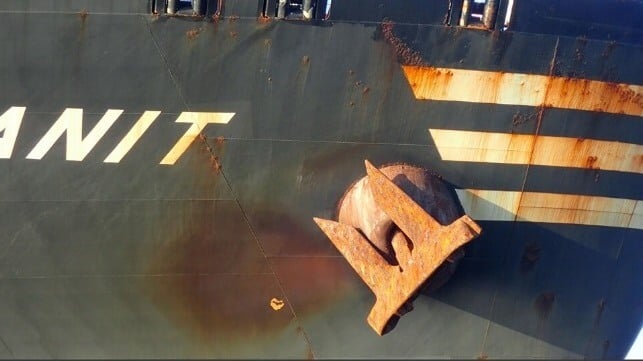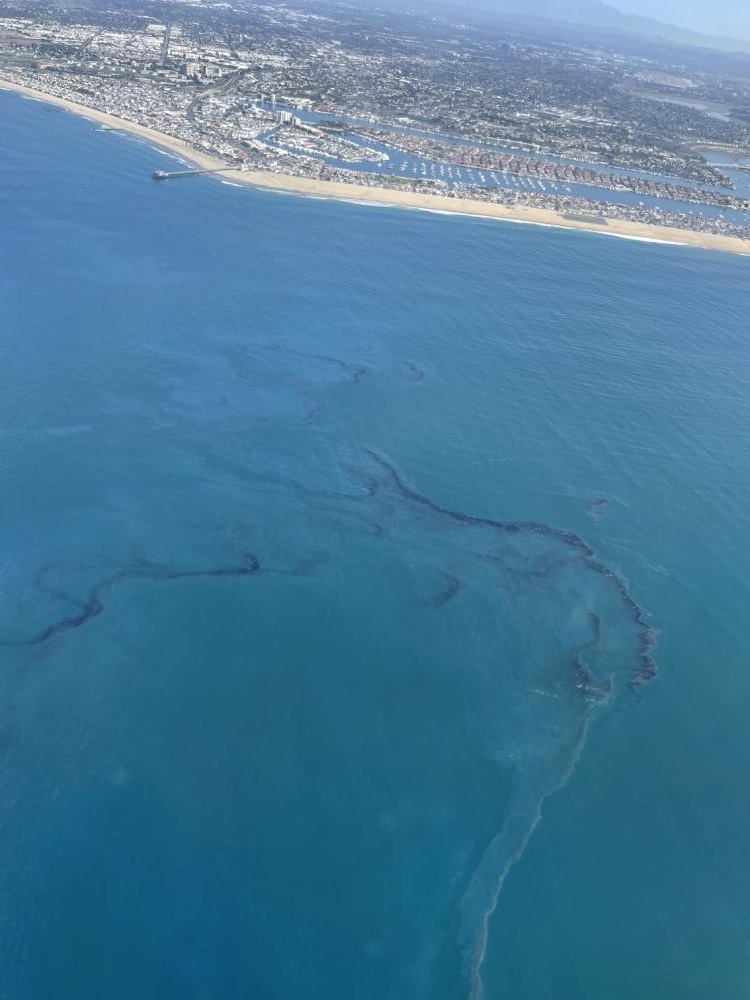NTSB: Dragged Anchor Caused San Pedro Bay Oil Spill

The National Transportation Safety Board (NTSB) has called for new VTS safety measures after the anchor-drag incident that caused an oil spill off the coast of California in October 2021.
The spill released around 588 barrels of crude oil into San Pedro Bay and caused about $160 million in damage, including cleanup costs. It was initiated when a container ship dragged anchor over an underwater pipeline in a storm eight months earlier. NTSB determined that the MSC Danit's anchor contacted and damaged the pipeline during a high wind event earlier in the year, and that stress fractures caused by the impact grew until the leak finally occurred.

Image courtesy USCG
Contributing factors included insufficient training for pipeline controllers and an inappropriate response to leak alarms, NTSB said. The agency found that there had been eight total leak alarms before the pipeline operators in the control room shut down and isolated the line. For 14 hours, the leak continued, and the release would have been smaller if the employees had been trained to respond appropriately, NTSB said.
The NTSB also found that the location of the anchorage allowed too little time for ships' crews to respond to an anchor-dragging incident before hitting the pipeline. The board recommended that the U.S. Coast Guard move the boundary of the anchorage farther away for safety.

that matters most
Get the latest maritime news delivered to your inbox daily.
The agency also called for new audible and visual alarms at Vessel Traffic Services (VTS) when an anchored ship gets close to a pipeline, along with procedures for VTS to notify pipeline operators of potential damage. The line was not marked on the VTS operators' charts, and they were not aware of the danger when MSC Danit dragged anchor over the area.
“Anchorages need to be designed to account for the size of vessels using them and the time it takes for these ships’ crews to react when anchor dragging occurs,” NTSB Chair Jennifer Homendy said. “Potential damage to a pipeline needs to be reported immediately because the consequences of a pipeline leak are so great."
